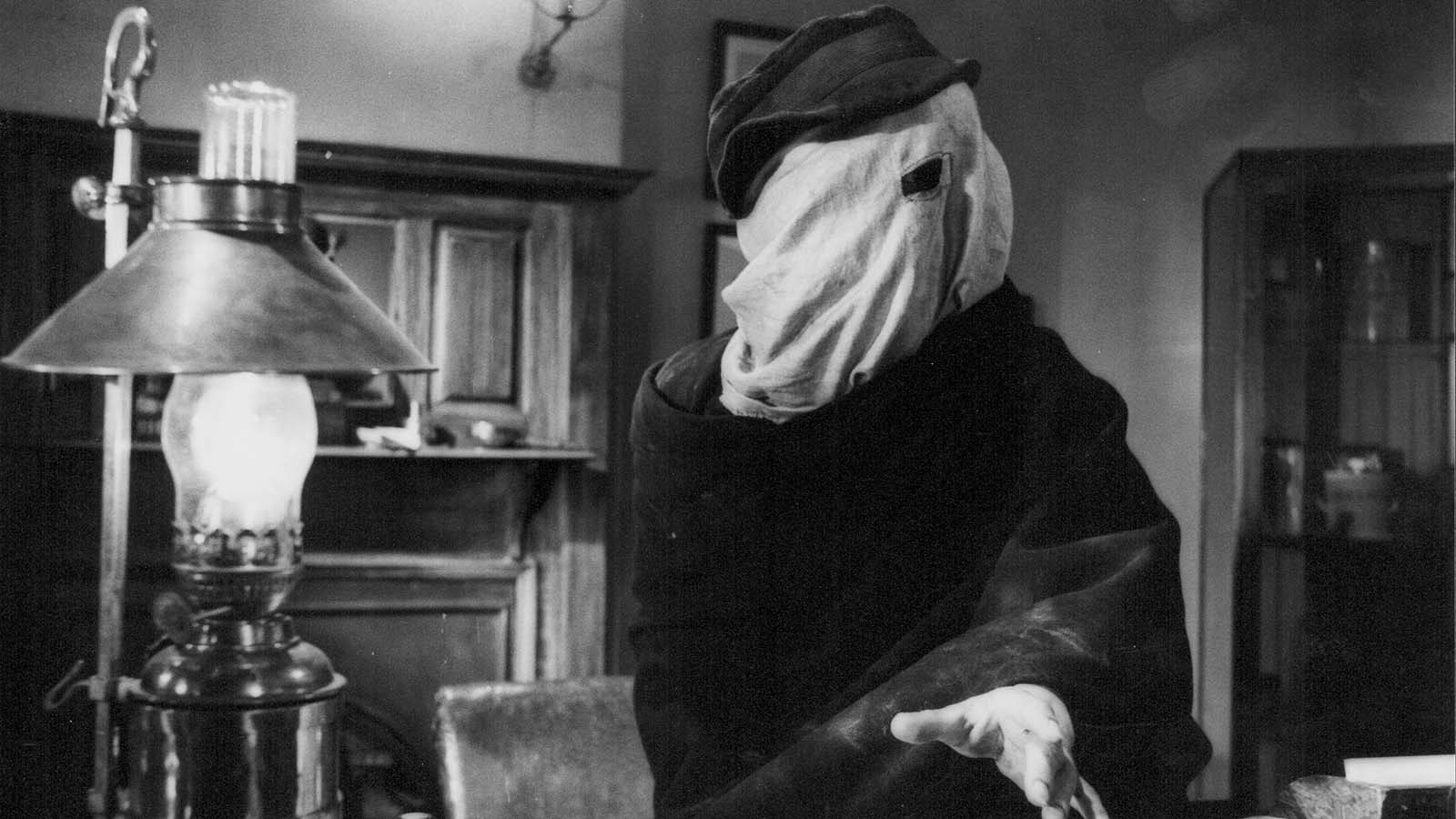
The Elephant Man is a remarkable movie that captivated audiences with its poignant story and exceptional performances. Directed by David Lynch and released in 1980, the film tells the bittersweet tale of Joseph Merrick, a severely disfigured man who becomes the center of attention in Victorian London. Starring John Hurt as Merrick and Anthony Hopkins as Dr. Frederick Treves, The Elephant Man delves into the themes of humanity, compassion, and acceptance.
In this article, we will uncover 40 fascinating facts about The Elephant Man, giving you an in-depth look into the making of this iconic film, its historical background, and the impact it has had on audiences around the world. From the incredible makeup transformations to the critical acclaim it received, join us as we delve into the captivating world of The Elephant Man.
Key Takeaways:
- “The Elephant Man” is a powerful movie based on a true story, showcasing the strength of the human spirit and the importance of empathy and acceptance in society.
- The film’s exceptional storytelling, emotional depth, and impactful message continue to inspire and resonate with audiences, making it a timeless cinematic masterpiece.
The Elephant Man was released in 1980.
Directed by David Lynch, this biographical drama film tells the story of Joseph Merrick, a man with severe physical deformities, and his journey in Victorian London.
The movie is based on a true story.
Joseph Merrick, also known as the Elephant Man, was a real person who lived in the late 19th century. The film draws inspiration from his life and struggles.
The role of Joseph Merrick was played by John Hurt.
John Hurt delivered a remarkable performance, bringing the character of Joseph Merrick to life with empathy and authenticity.
The makeup for Joseph Merrick took several hours to apply.
To accurately portray Joseph Merrick’s physical deformities, extensive prosthetics and makeup were used, which required hours of preparation before filming.
The movie received eight Academy Award nominations.
The Elephant Man was recognized for its exceptional storytelling and received nominations in categories such as Best Picture, Best Director, and Best Actor.
It won the BAFTA Award for Best Film.
The movie was honored with the British Academy Film Award for Best Film, solidifying its critical acclaim and international recognition.
The film addresses themes of humanity and compassion.
The Elephant Man explores the way society treats individuals who are different and highlights the power of empathy and kindness.
David Lynch was initially hesitant to direct the film.
Known for his surreal and unconventional style, David Lynch was initially unsure about taking on a biographical drama. However, he successfully brought his unique vision to the project.
The Elephant Man received widespread critical acclaim.
Critics praised the film for its powerful storytelling, extraordinary performances, and sensitive portrayal of Joseph Merrick’s life.
The movie was a commercial success.
Despite being a smaller-scale independent film, The Elephant Man found success at the box office and resonated with audiences worldwide.
The Elephant Man was shot in black and white.
Using black and white cinematography, the film enhanced the somber atmosphere and showcased the intricate details of the period setting.
The movie was predominantly filmed in London.
The production chose authentic locations in London to recreate the Victorian era, adding to the film’s realism and historical accuracy.
The Elephant Man received a standing ovation at the Cannes Film Festival.
The film’s powerful portrayal of human resilience and society’s treatment of those who are different resonated with the festival audience, leading to a standing ovation.
The Elephant Man is often regarded as one of David Lynch’s finest works.
The film demonstrated Lynch’s ability to blend emotional storytelling with his distinct visual style, solidifying his reputation as a master filmmaker.
The Elephant Man inspired a Broadway play.
In 2002, a play adaptation of The Elephant Man premiered on Broadway, starring Billy Crudup as Joseph Merrick.
The movie emphasizes the importance of inner beauty.
Despite Joseph Merrick’s physical appearance, the film emphasizes the beauty of his spirit and the strength of his character.
The Elephant Man tackles societal prejudices.
The film critiques how society often marginalizes and mistreats individuals who do not fit societal norms, highlighting the need for acceptance and understanding.
The Elephant Man’s story had previously been adapted for television.
In 1979, a television movie titled The Elephant Man was released, starring Philip Anglim as Joseph Merrick.
The movie received nominations for Golden Globe Awards.
The Elephant Man received several nominations for Golden Globe Awards, recognizing its exceptional performances and overall quality.
The Elephant Man showcases the power of perseverance.
Joseph Merrick’s unwavering determination to live his life despite his physical challenges serves as a testament to the strength of the human spirit.
The film’s screenplay was written by Christopher De Vore, Eric Bergren, and David Lynch.
The three writers crafted a compelling and emotionally resonant script that brought Joseph Merrick’s story to the silver screen.
The Elephant Man was shot in chronological order.
To capture the emotional journey of Joseph Merrick, the film was shot in the order in which the events of his life unfolded.
The Elephant Man’s haunting score was composed by John Morris.
The film’s musical score perfectly complements the somber and atmospheric tone, enhancing the emotional impact of the story.
The Elephant Man was nominated for Best Original Score at the Academy Awards.
John Morris’s haunting composition received recognition for its contribution to the film’s overall atmosphere and storytelling.
The movie’s narrative is driven by Joseph Merrick’s perspective.
The Elephant Man immerses the audience in Joseph Merrick’s experiences, allowing them to empathize with his journey and share in his emotions.
The Elephant Man tackles themes of identity and self-acceptance.
Joseph Merrick’s struggle to find acceptance and reconcile his own identity forms a central theme of the movie.
Michael Jackson was one of the film’s executive producers.
The King of Pop recognized the significance of Joseph Merrick’s story and became involved in the production of the film.
The Elephant Man received a special award at the Cannes Film Festival.
The festival awarded the film with the “Prix de la mise en scène” (Best Director) and a special mention for its exceptional contribution to cinema.
The film’s cinematography brilliantly captured the contrast between beauty and darkness.
Through stunning visuals, the film juxtaposes moments of profound beauty with the darker aspects of Joseph Merrick’s life.
The Elephant Man is considered a landmark in disability representation in film.
The movie opened up discussions about disability rights and brought attention to the way society treats differently abled individuals.
The Elephant Man was nominated for the Palme d’Or at the Cannes Film Festival.
The highest honor at the Cannes Film Festival, the Palme d’Or nomination symbolizes the film’s artistic excellence and impact.
The Elephant Man’s success led to an increase in public awareness of Joseph Merrick’s story.
The film played a significant role in bringing attention to Joseph Merrick’s life and increasing understanding of his experiences.
The Elephant Man provoked discussions about disability and beauty standards.
Through its thought-provoking narrative, the film challenged societal norms and questioned traditional definitions of beauty.
The Elephant Man received a BAFTA nomination for Best British Film.
The film’s British origins and its contribution to British cinema earned it a nomination in this prestigious category.
The Elephant Man became a cultural touchstone for empathy and compassion.
The film’s powerful storytelling and its message of acceptance resonated with audiences and left a lasting impact on popular culture.
The Elephant Man showcased the talents of a remarkable ensemble cast.
Alongside John Hurt, the film featured stellar performances from Anne Bancroft, Anthony Hopkins, and John Gielgud, among others.
The Elephant Man was nominated for Best Adapted Screenplay at the Academy Awards.
The film’s screenplay, which adapted Joseph Merrick’s life story for the screen, received recognition for its compelling and sensitive portrayal.
The Elephant Man is considered a cinematic masterpiece.
Over the years, the film has garnered a strong reputation for its exceptional storytelling, emotional depth, and artistic merit.
The Elephant Man was a passion project for David Lynch.
David Lynch was deeply invested in bringing Joseph Merrick’s story to the screen, resulting in a heartfelt and impactful film.
The Elephant Man’s legacy continues to inspire filmmakers and audiences.
Decades after its release, the film’s themes of empathy, acceptance, and the power of the human spirit still resonate and inspire new generations.
Conclusion
In conclusion, The Elephant Man is a remarkable film that tells the extraordinary story of Joseph Merrick, a man with severe physical deformities who transcended societal prejudice and found acceptance and compassion. Directed by David Lynch and starring John Hurt in a breathtaking performance, the movie conveys the powerful message of empathy and the triumph of the human spirit.The film received critical acclaim and garnered numerous accolades, including eight Academy Award nominations. It beautifully captures the essence of Merrick’s tragic but inspiring journey, highlighting themes of isolation, humanity, and the perception of beauty.”The Elephant Man” serves as a poignant reminder that true beauty lies within, and that our differences should be celebrated rather than stigmatized. It remains a timeless piece of cinema, continuing to captivate audiences and provoke thought long after its release.If you haven’t watched The Elephant Man yet, do yourself a favor and experience this cinematic masterpiece that will stir your emotions and leave an indelible mark on your heart.
FAQs
1. Is The Elephant Man based on a true story?
Yes, The Elephant Man is based on the true story of Joseph Merrick, also known as the Elephant Man, who lived in the late 19th century.
2. Who directed The Elephant Man?
The film was directed by David Lynch, a renowned American filmmaker known for his distinctive style and surreal storytelling.
3. Who stars in The Elephant Man?
John Hurt delivers a mesmerizing performance as Joseph Merrick, earning him critical acclaim and a BAFTA nomination for Best Actor.
4. Did The Elephant Man receive any awards?
Yes, the film was nominated for eight Academy Awards, including Best Picture and Best Director, and won the BAFTA Award for Best Film.
5. What is the message of The Elephant Man?
The film explores themes of compassion, human dignity, and the power of empathy, highlighting the importance of looking beyond physical appearances.
6. Is The Elephant Man suitable for all audiences?
The film depicts sensitive and emotional themes, so parental discretion is advised. It is recommended for mature audiences.
The Elephant Man's powerful themes of humanity, perseverance, and inner beauty continue to resonate with audiences. If you're fascinated by the human spirit and our shared rights, explore the fundamental principles that unite us all. Journey back to the Victorian era's enchanting extravaganzas, where spectacle and wonder collide. For a truly inspiring look at overcoming challenges, discover the remarkable stories of those who rise above disability through the power of horseback riding.
Was this page helpful?
Our commitment to delivering trustworthy and engaging content is at the heart of what we do. Each fact on our site is contributed by real users like you, bringing a wealth of diverse insights and information. To ensure the highest standards of accuracy and reliability, our dedicated editors meticulously review each submission. This process guarantees that the facts we share are not only fascinating but also credible. Trust in our commitment to quality and authenticity as you explore and learn with us.


